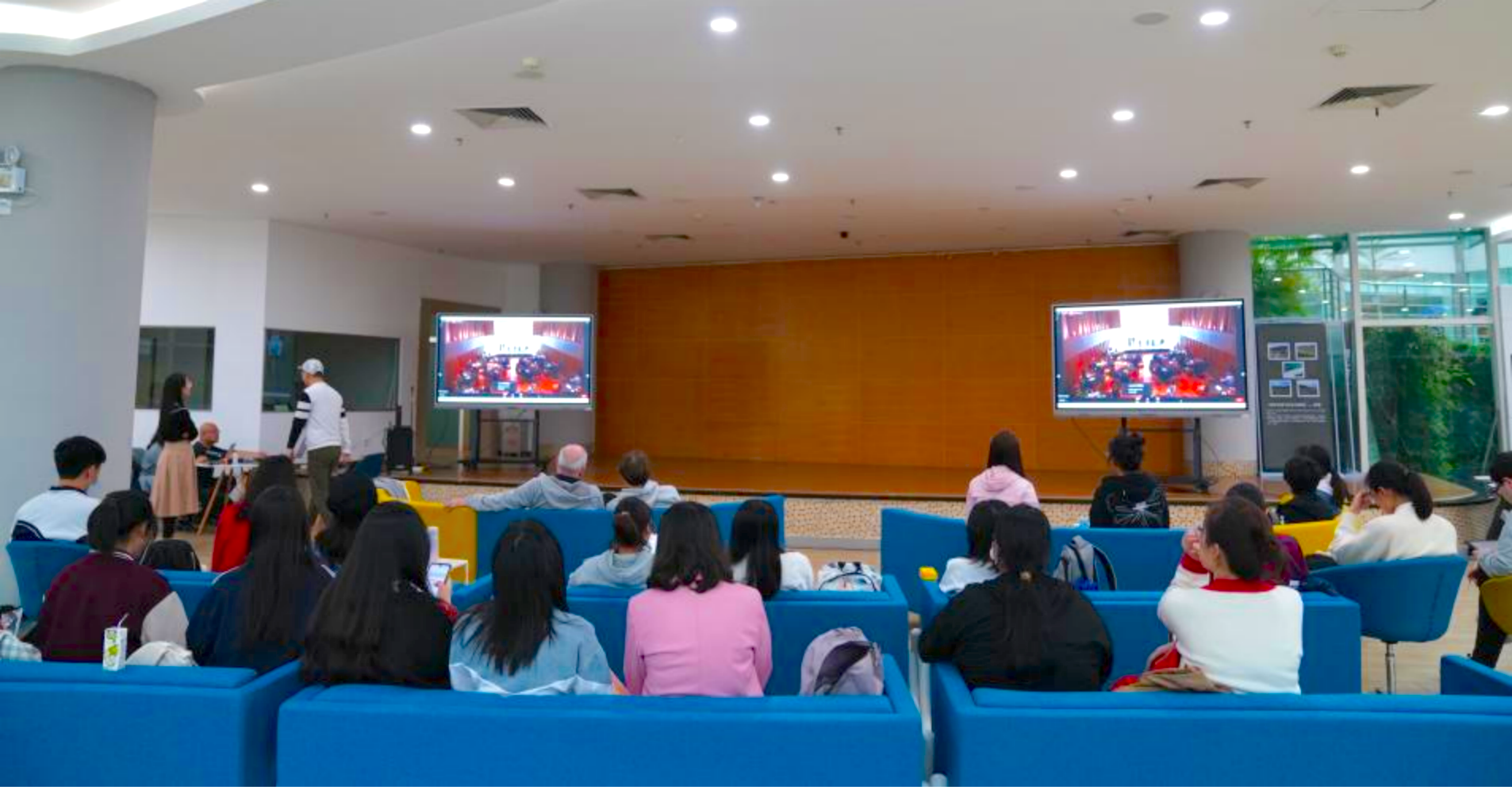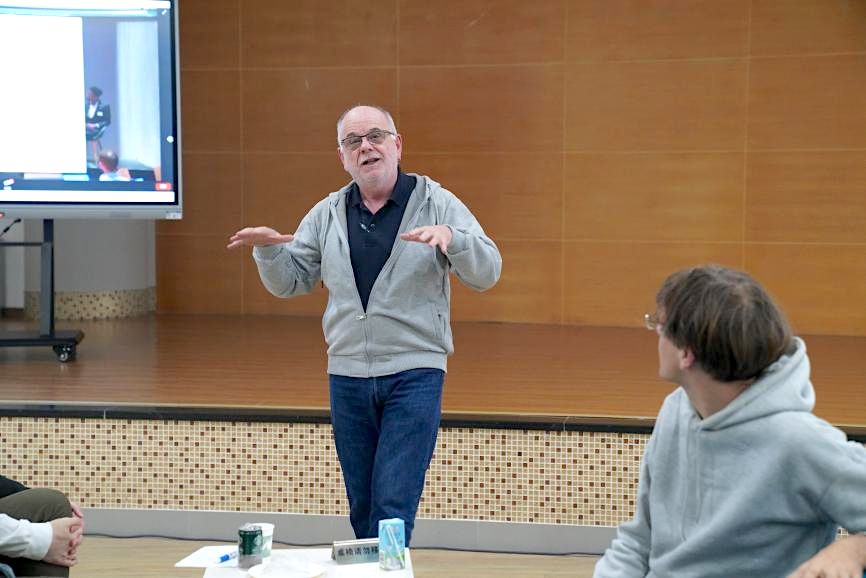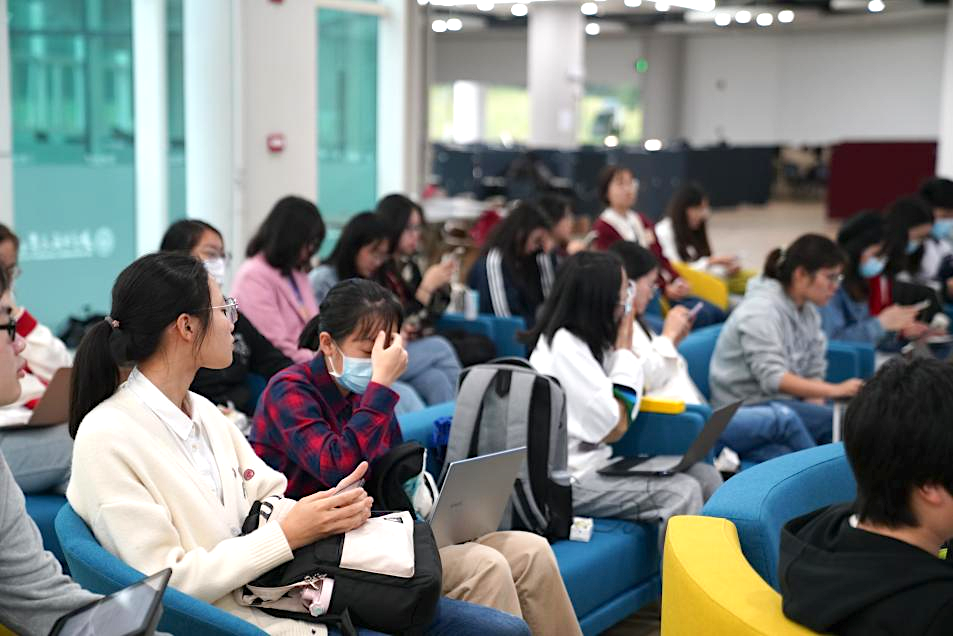On the evening of March 24th, the 6th Future Education International Salon was held online and offline by the Future Education College and the University of Cambridge. The salon focused on the theme of "2122 foresight of the future, the education landscape 100 years later" and invited scholars from around the world who are interested in educational innovation to participate. The offline venue was set up at Room A101 of the Inspiring Teaching Building of the Future Education College and the Future Digital Education Research Institute of the University of Cambridge. The purpose of the event was to inspire and guide participants to explore the future education vision, and to discuss the development trends and challenges of future education.

The three guest speakers at the salon event were Isaiah Willington-Lynn, founder of the Interdisciplinary College in the UK, Dr. Emily Shuckburgh, head of the doctoral training center at the UK Energy Research Institute, and Avi Warshavsky, founder of the MindCet Education Technology Innovation Center. They shared their achievements and experiences in exploring new educational models and teaching methods in their respective research fields and innovative practices, as well as their thoughts and insights on future education.

Dr. Isaiah Willington-Lynn is a resident anthropologist of the "21st Century Brand" at the Interdisciplinary College in London. He shared his team's interdisciplinary teaching experiments designed to promote students' innovative, practical, and multi-dimensional comprehensive development. By promoting students' autonomous selection of topics that interest them for in-depth learning, they explore teaching methods oriented towards the future.
Emily Shuckburgh is the Deputy Research Director of the Science and Policy Center, a researcher for the British Antarctic Expedition, and the head of the doctoral training center at the UK Energy Research Institute. She leads the work of applying artificial intelligence to environmental risk research. She said that her team conducted teaching experiments at a primary school in Cambridge to promote systematic knowledge related to the environment and climate. They lead students to understand the natural ecological environment through cooperation and project-based learning and engage in creative sharing and demonstrations. This teaching experiment provides a try for integrating scientific education into practical teaching and provides a feasible solution for cultivating environmental and scientific literacy.
Avi Warshavsky is the founder and CEO of MindCET Education Technology Innovation Center and a global leader in educational technology. He provides support for startups and educators, including accelerators, research and development, investment, testing, and adoption of innovative teaching methods based on cutting-edge technology. Warshavsky shared his research center's landing teaching projects, which provide feasible references for the deep integration of educational technology into teaching practice.
In the free discussion section, Professor Simon Mahony of the School of Digital Publishing and Digital Humanities Research Center stated that "learning is not just about learning knowledge from teachers, but more importantly, learning in the environment." Learning is learning through practice and requires interaction with the surrounding environment and people. Future education should reflect more interaction between learners. In the teaching process, teachers should provide heuristic teaching and leave room for students to explore.

Chris Stahl, a teacher from the School of Future Design at the school, shared his views on future education from the perspective of cultural differences. He stated that the mode of standardized testing should be improved to better test students' comprehensive abilities, and education should focus more on the process and the growth of students.
Yin Jiao, a student majoring in educational management, and Shen Dejing, an English major, raised the question of "whether AI can replace future teaching" based on their own learning experiences. Teachers and students discussed practical issues such as how to achieve technology-assisted future teaching.
This salon was the first offline open academic event organized by the University of Cambridge after the UK lifted its epidemic prevention and control measures. The University of Cambridge attaches great importance to it and has publicized and reported on this event and our school on the official website of the University of Cambridge and the social media of the Future Digital Education Research Institute of the University of Cambridge.
Teachers and students generally expressed that they have gained critical thinking about future education in this salon activity and have a greater vision for the future of education.
The salon ended successfully in a warm atmosphere.



 Last Page
Last Page

 Phone:0756-3621121
Phone:0756-3621121
 Email:ccie@bnu.edu.cn
Email:ccie@bnu.edu.cn